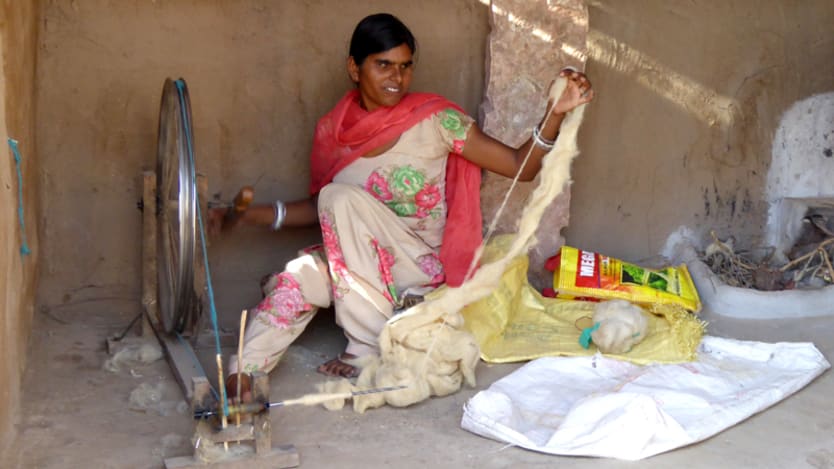
Following the recent publication of the “zero draft” of the sustainable development goals, and with less than 100 days to go until the U.N. summit, the development community is abuzz with comment and analysis of the goals, targets, follow up mechanisms and financing aspects — looking forward to the next major global jamboree this month in Addis Ababa, Ethiopia, on Financing for Development.
But there's another story to the SDG process that's not so well-known and where there are worrying signs that when it comes to people with disabilities, what is promised by the wide-ranging — and in places ambitious — goal and target framework, will not be delivered. And that's in the technical discussions around the indicators to measure those targets and goals.
These are being developed by statisticians and experts from member states and U.N. agencies, with very little involvement from civil society. They are attempting the extremely difficult task of balancing the sheer quantity of information that would be required to measure all aspects of the proposed SDG framework with the realities of existing low capacity to collect and analyze good quality information in many countries.
And there is a balance to be found between a focus on what can actually be measured and ensuring the monitoring framework sticks to the central promises of the goals and targets to leave no one behind.
So, it's a dilemma that not everything can be measured, but what isn't measured, often isn't prioritized.
See related stories:
► Australia steps up for disability-inclusive development
► Open the doors of education for Africa’s disabled students
► Obtaining a truly inclusive framework for future generations
Let's take people with disabilities as an example. The disability movement, while it could always hope for better, is relatively satisfied with the current mentions of disability at the goal and target level, as well as within the zero draft's summative declaration and means of implementation sections. The SDG mantra of “leave no one behind” is alive and kicking at these top line levels.
However, go into the detail of the U.N. Statistical Commission’s Inter-Agency Expert Group on SDG indicators and the picture is radically different. In fact, its almost 100 percent exclusory of people with disabilities — a step right back to the days of the Millennium Development Goals when disability meant invisibility.
The group is looking to develop a set of around 100 global-level priority indicators. Working on the basis that this list will form the majority of focus for SDG progress reviews through its 15-year time frame, being on this list means being at the heart of the SDG follow-up, review and policy decision-making process.
Disability gets just one mention in these 100 indicators. One mention around access to disability benefits. No expertise in disability is needed to realize that access to state welfare handouts, while absolutely a core need and right for many persons with disabilities, does not sum up their lived experience of the barriers they face to their inclusion.
The disparity between the target-level aspiration and the reality of how progress will be measured is huge:
● Target 4.5 calls for equal access to education for persons with disabilities (among other groups). The indicator? No mention.
● Target 8.5 calls for full employment for persons with disabilities. The indicator? No mention.
● Target 10.2 calls for social, economic and political inclusion. The indicator? No mention.
● Target 11.2 in the zero draft added a welcome new focus on accessible public transportation. The indicator? No mention.
There is a proposal to measure the proportion of all indicators with full data disaggregation (which would include disability) as a "catchall" measure of inequality. But this looks unlikely to have much impact, given the lack of actual focus or mention of disability in the other suggested indicators.
The SDGs are a huge opportunity to address some of the most urgent questions of inequality, to take a step forward in progressive realisation of human rights, and to protect our shared global environment.
At Sightsavers we're committed to continuing our global action toward the full and meaningful inclusion of people with disabilities in the SDGs. We look forward to working alongside IAEG and U.N. Statistical Commission members to ensure this happens throughout the monitoring framework.
The mantra of leave no one behind is a powerful and unifying one. It is imperative that the discussions on indicators lead to a far more inclusive review and follow-up mechanism than currently looks like being the case. If not, yet again, the mantra will need to be followed by a caveat — except people with disabilities.
Join the Devex community and access more in-depth analysis, breaking news and business advice — and a host of other services — on international development, humanitarian aid and global health.
Search for articles
Most Read
- 1
- 2
- 3
- 4
- 5






